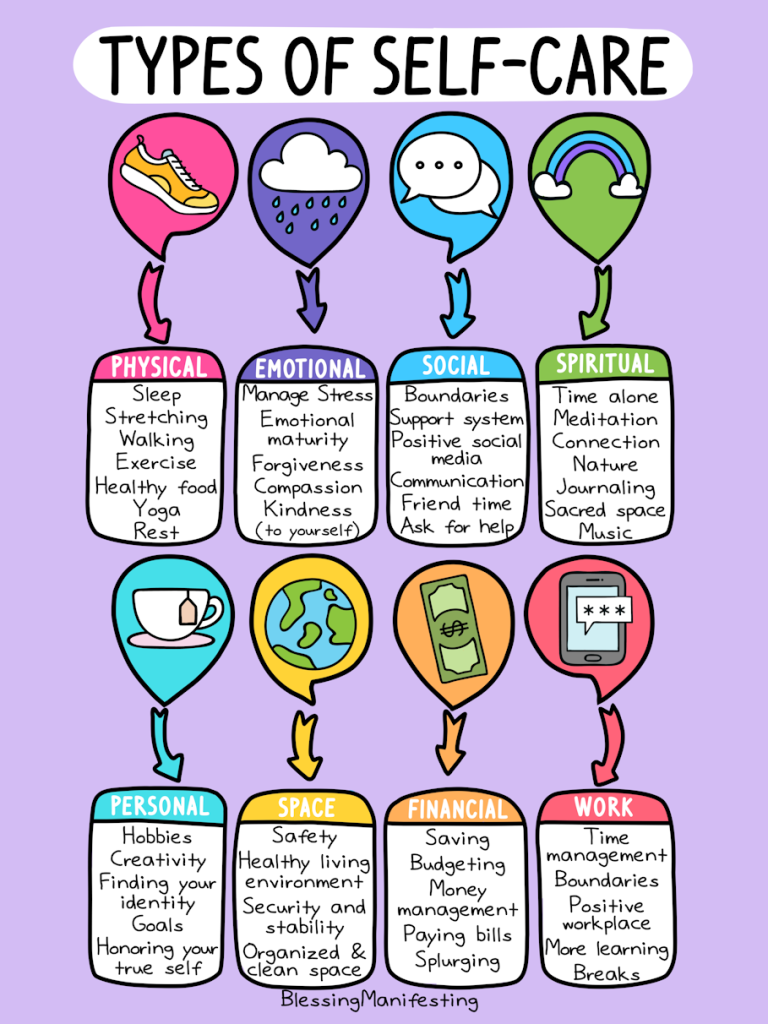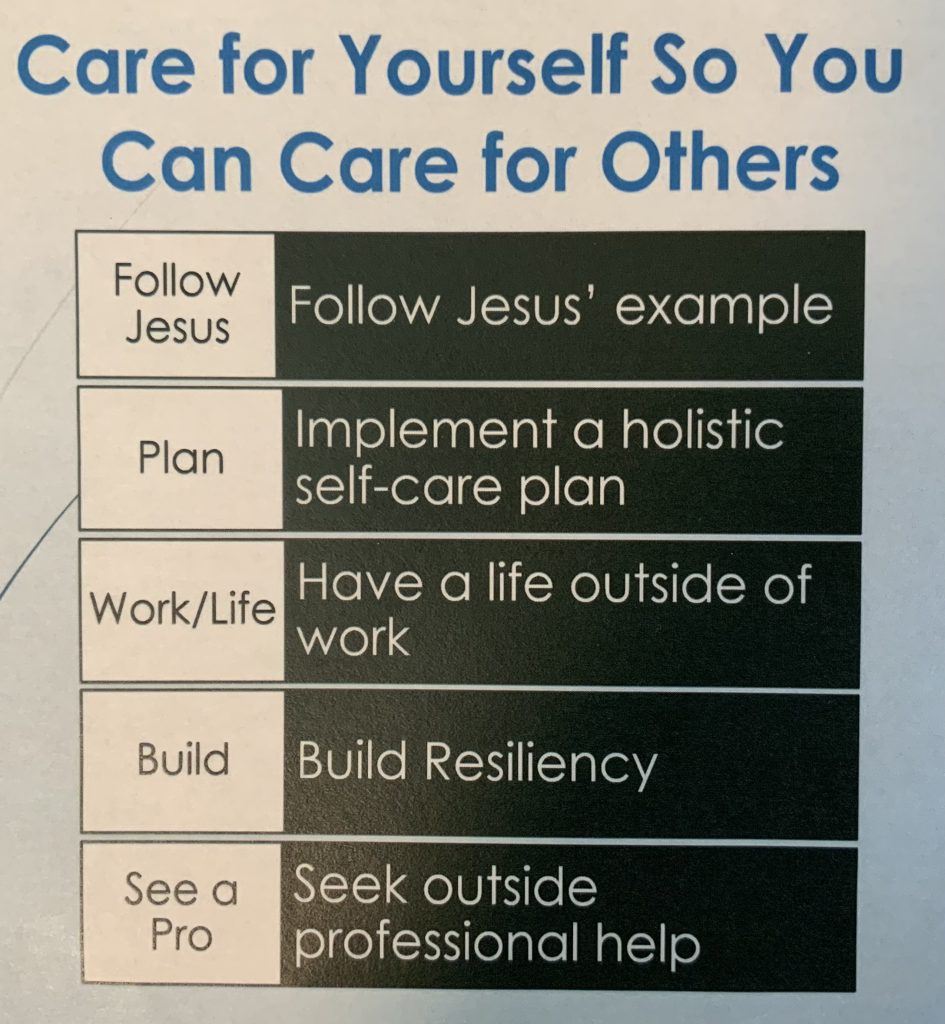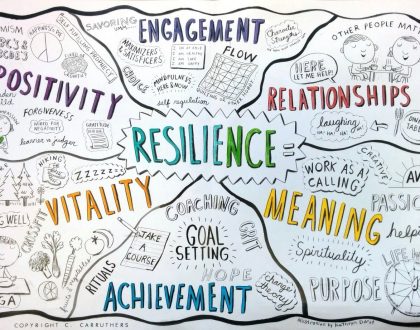Finding Healing & Hope

Life is full of moments that break us open—trauma, grief, loss, and the ache of loneliness. Yet, in the midst of these valleys, God is not distant. God is present, making beautiful things out of the dust of our lives, working in the mess and the pain to bring about healing and newness. We are reminded that trauma is not a rare occurrence; it is a universal part of the human story, woven into the lives of our faith ancestors and each of us. The challenge is not to avoid pain, but to learn how to walk through it—together.
Our stories of loss and struggle are not meant to be hidden away. When we share our experiences, even if it’s just dipping a toe into vulnerability, we offer hope and encouragement to others who may be walking a similar path. Grief is not something we “get over”; it becomes part of our story, shaping us, and reminding us of the love that endures. Each person’s grief is unique, just as each relationship is unique, and we must honor the different ways we process and heal.
One of the most important factors in healing from trauma is the presence of others. Who walks with us in our darkest moments matters deeply. Sometimes, the best gift we can give or receive is simply presence—a hug, a meal, a listening ear, or just sitting together in silence. We see this in the story of the prodigal son, where the father’s embrace brings healing before any words are spoken. Our church family is called to be this kind of community, holding one another in love, especially when the temptation is to isolate and withdraw.
Healing is not just about surviving pain, but about learning to receive joy again. God’s desire is not for us to remain stuck in suffering, but to be restored, to find light breaking into our darkness. Practices that ground us—like journaling, breath prayers, walking, or simply breathing deeply—help reintegrate our minds, bodies, and spirits, especially when trauma has left us fragmented. Communion itself is a holy act of remembering, of putting ourselves back together in Christ’s presence and in the presence of one another.
God does not wait for us on the other side of our pain; God sits with us in the ash heap, in the valley, in the darkness. Through the love of Christ, through the embrace of community, and through small, embodied acts of care, we are made new. As we receive God’s love, we are also called to give—to be a healing presence for others, to offer the same compassion and support that we have received.
Key Takeaways
- Trauma and grief are universal experiences, not signs of weakness or failure. Even our faith ancestors faced deep pain and loss, reminding us that we are not alone in our struggles. Recognizing the commonality of suffering helps us move beyond shame and isolation, opening us to the healing presence of God and community.
- The presence of others is often more healing than any words or advice. When we are in pain, what we need most is not answers, but companionship—someone to sit with us, to offer a hug, or simply to be there. This ministry of presence reflects the heart of God, who meets us with compassion rather than interrogation, as seen in the story of the prodigal son.
- Grief is not something to “get over,” but something to carry and integrate into our lives. Each person’s grief is unique, shaped by the particularities of their relationships and experiences. Honesty about our feelings, and openness to the support of others, allows us to move forward without denying the reality of our loss.
- Healing from trauma involves both mind and body. Practices like journaling, breath prayers, and embodied rituals help reintegrate what trauma has separated. These small, simple acts—often overlooked—can be the most consequential steps toward wholeness, grounding us in God’s presence and restoring our resilience.
- God is present with us in our darkest moments, not just waiting to rescue us from afar. The mystery of communion reminds us that Christ enters into our suffering, bearing our burdens and offering himself to us. As we receive this love, we are called to extend it to others, becoming a healing presence in a world full of pain.
Questions for Reflection & Application
The sermon mentions that God is not just waiting for us on the other side of our pain, but sits with us in the valley. How does this understanding of God’s presence affect the way we view suffering and healing?
The sermon encourages us to share our stories of loss and struggle, even if it’s just “dipping a toe into vulnerability.” Is there a part of your story you’ve been hiding that, if shared, might encourage someone else? What holds you back from sharing?
When you are hurting, do you tend to isolate yourself or reach out for help? What is one small step you could take in the next 3 days to let others in, even if it feels uncomfortable?
The sermon talks about simple practices like journaling, breath prayers, walking, or just breathing deeply as ways to help heal from trauma. Which of these practices could you try this week? What might get in the way, and how can you make space for it?
Communion is described as a holy act of “remembering”—putting ourselves back together in Christ’s presence and in the presence of others. How might participating in communion (or another shared spiritual practice) help you feel more connected to God and your church family?
Resources From Rev Hess


Recommended Posts

I Need You To Survive
June 24, 2025

Building Resilience
June 19, 2025
Hope in Our Wounds
June 5, 2025
